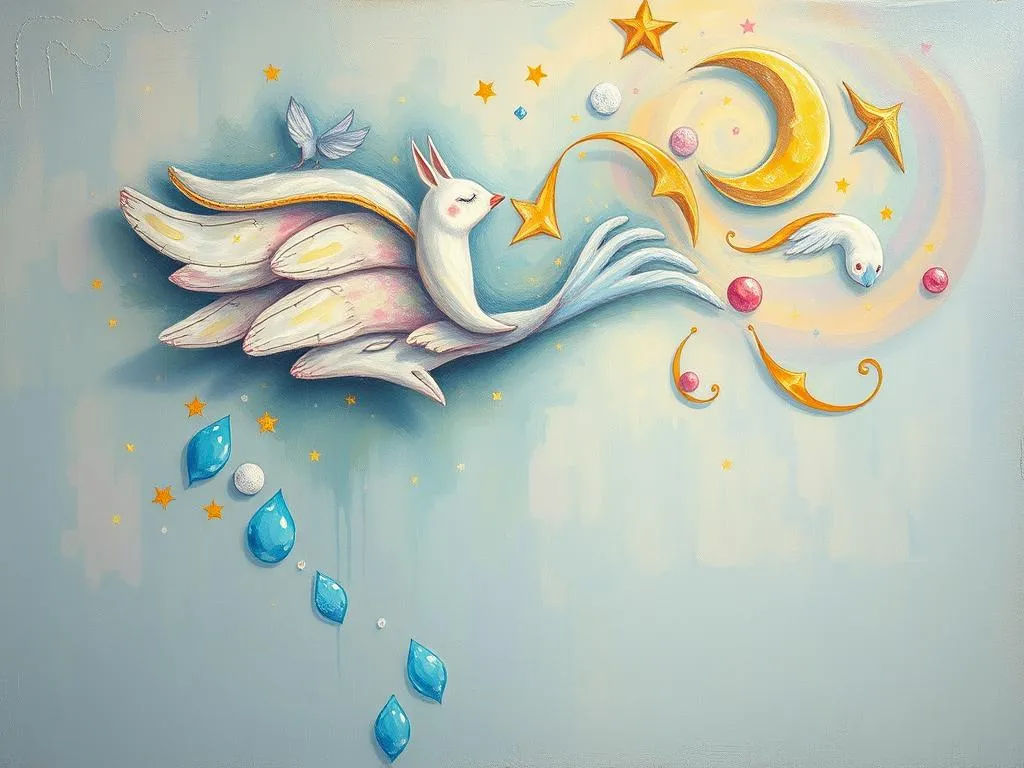
Introduction
Dreams have long fascinated humanity, offering a glimpse into our subconscious and serving as a reflection of our emotions, experiences, and desires. Among the myriad of dreams we experience, those involving weeping can evoke powerful feelings and leave a lingering impact long after we awaken. The symbolism of weeping in dreams is particularly intriguing, as it often embodies emotional release, grief, or a need for healing. Understanding the nuances of this dream can provide profound insights into our waking lives, making it a topic worthy of exploration.
In this article, we will unravel the symbolism of weeping as a dream messenger. We will delve into its meanings, examine various scenarios that might occur, and draw connections to real-life situations. By the end, you will have a clearer understanding of how these dreams relate to your personal journey, encouraging a deeper reflection on your emotional state.
Symbolism and Meaning
At its core, weeping in dreams often signifies a cathartic release of pent-up emotions. It may stem from feelings of sadness, loss, or frustration that have been suppressed in waking life. This symbolism can vary widely based on the context of the dream and the emotions experienced within it.
One significant aspect of weeping in dreams is its association with grief. If a dreamer finds themselves weeping for a lost loved one, it could reflect an ongoing process of mourning or unresolved feelings surrounding that loss. In this context, weeping serves as a reminder to acknowledge and process such emotions, rather than allowing them to fester in silence.
Conversely, weeping can also represent a release of stress or anxiety. In a fast-paced world where individuals often feel the pressure to maintain a strong facade, dreams of weeping might indicate that the dreamer is overwhelmed and in need of an emotional outlet. This interpretation invites the dreamer to consider whether they are truly allowing themselves to feel and express their emotions in their waking life.
Another perspective to consider is the notion of vulnerability. Weeping in dreams can symbolize a longing for support and understanding. It may indicate a desire to connect with others on a deeper level or express feelings that have been kept hidden. This aspect of weeping in dreams encourages individuals to reflect on their relationships and consider whether they are allowing themselves to be vulnerable with those they care about.
Additionally, weeping can serve as a catalyst for transformation. In some cases, dreams of weeping may precede moments of personal growth or change. They can signal the need to release negative emotions in order to embrace new opportunities or directions in life. This interpretation suggests that weeping is not merely a sign of sorrow, but can also be viewed as a necessary step toward healing and renewal.
Key Scenarios and Variations
The context in which weeping occurs in dreams can significantly alter its interpretation. For instance, if a dreamer finds themselves weeping openly in a public space, it may indicate a fear of exposure or vulnerability in their waking life. This scenario could suggest that the individual feels overwhelmed by their emotions but is hesitant to share them with others, highlighting a potential need for connection and support.
Alternatively, if the dreamer weeps quietly in solitude, this might reflect a more introspective approach to their emotions. This scenario could indicate that the dreamer is processing feelings internally and may benefit from self-reflection or journaling to gain clarity. Here, weeping serves as a personal journey towards understanding one’s emotional landscape.
In dreams where the dreamer witnesses someone else weeping, the symbolism may shift toward empathy and compassion. This scenario could indicate that the dreamer is attuned to the emotional struggles of others, perhaps feeling a sense of helplessness or a desire to provide comfort. Such dreams can invite the dreamer to examine their relationships and consider how they might better support those around them.
Another poignant variation involves weeping due to a specific event or memory. For example, if the dreamer is weeping over a lost opportunity or a significant life change, it may highlight unresolved feelings about that event. This scenario encourages the dreamer to reflect on their past decisions and contemplate how they can move forward positively, rather than remaining stuck in regret.
The setting of the dream can also influence its meaning. A dreamer who weeps in a serene natural environment may be experiencing a release of emotions that leads to a sense of peace and tranquility. In contrast, weeping in a chaotic or threatening environment might signify overwhelming stress or anxiety in their waking life. Each scenario provides a unique lens through which to view the dreamer’s emotional state, reinforcing the importance of context in dream interpretation.
Real-Life Connections and Takeaways
Understanding the symbolism of weeping in dreams can offer valuable insights into our waking lives. When reflecting on such dreams, it is essential to consider the emotions felt during the dream and the context in which they occur. By doing so, individuals can begin to connect their dream experiences to their real-life situations.
For those who frequently experience weeping in dreams, it may be beneficial to engage in self-reflection or expressive activities. Journaling can serve as a powerful tool for processing emotions, allowing individuals to explore their feelings in a safe and constructive manner. Writing about the dream, the emotions felt, and any associated memories can help bring clarity to the underlying issues needing attention.
Additionally, seeking support from trusted friends or mental health professionals can facilitate emotional healing. Sharing feelings of vulnerability with others can foster deeper connections and provide a sense of relief. It is crucial to remember that expressing emotions is not a sign of weakness but rather a testament to one’s strength and resilience.
Moreover, individuals can consider incorporating mindfulness practices into their daily routines. Mindfulness meditation can help cultivate awareness of emotions and promote a sense of peace, making it easier to navigate feelings of sadness or stress. By developing a greater connection to their emotional state, individuals may find that their dreams evolve, potentially leading to more positive dream experiences.
Ultimately, dreams of weeping serve as poignant reminders of our emotional landscape. They encourage us to confront our feelings, embrace vulnerability, and seek connections with others. Additionally, they highlight the importance of allowing ourselves to grieve, heal, and transform. By reflecting on these dreams and drawing connections to our real-life experiences, we can gain a deeper understanding of ourselves and pave the way for emotional growth.
In conclusion, the symbolism of weeping as a dream messenger is rich and multifaceted. By exploring the meanings, scenarios, and real-life connections associated with these dreams, we can harness their insights for personal reflection and emotional healing. As you ponder your own experiences with weeping in dreams, take time to consider what these emotions may be telling you about your waking life. Embrace the journey of self-discovery, and allow your dreams to guide you toward a deeper understanding of your inner self.







